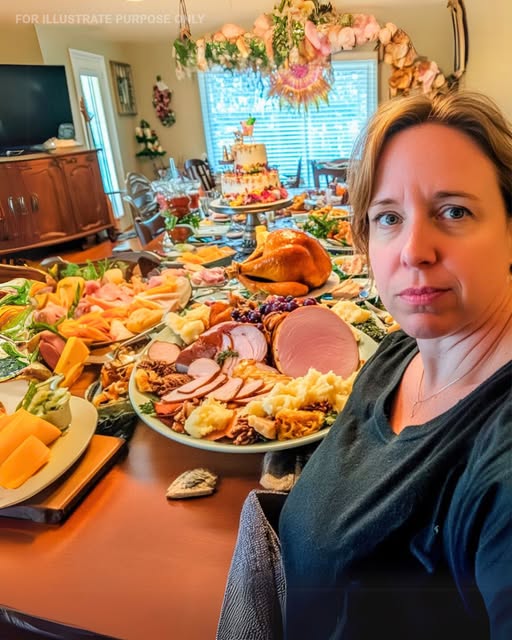For my husband Todd’s 35th birthday, I planned an elegant dinner party for twenty guests, hoping to create something meaningful and memorable. I poured two weeks of effort into planning and prepping, thinking this year he might finally appreciate it. But right before guests arrived, Todd casually told me he was skipping the dinner to watch the game at a bar with his friends.

He didn’t even flinch—just brushed it off like it wasn’t a big deal. After six years of marriage, I had gotten used to his habit of taking credit for things he didn’t help with, but this time crossed a line. Every year, I gave his birthday my full energy, and every year, he acted like it was no big deal. Thanksgiving was another example—he suggested hosting both our families, but while I cooked the meal, decorated, and baked pies, he spent two weeks playing fantasy football. Then during dinner, he stood up and acted like he’d organized the whole thing, soaking in praise that should’ve gone to me. That sense of entitlement just kept growing, and this birthday was the final straw. Todd had asked for a “classy, proper dinner” with all our friends and family.
I wasn’t thrilled, but I agreed to do it, thinking maybe he’d finally be thankful. I worked late into the evenings, organizing the menu, cleaning the house, even borrowing extra chairs and tables from the neighbor. Every night after work, I’d tie up my hair and get to scrubbing, arranging, and prepping—while Todd just kicked back and said, “You’re good at these things.” On the big day, everything was perfect—sparkling clean house, coordinated tablecloths, handwritten place cards, appetizers ready, and even gold flakes on the cake. And right before guests arrived, Todd walked into the kitchen, glanced at his phone, and said, “Looks good,” then added, “But don’t bother finishing. I’m going to the bar with the guys to watch the game.
Just cancel.” I couldn’t believe it. Weeks of effort dismissed like it was nothing. He told me to just call everyone and make up an excuse. He left while I stood there heartbroken, humiliated, and boiling with rage. But instead of crying, I acted. I texted every guest and told them the location had changed—dinner would now be at the bar down the street. I packed up the food, loaded it into the car, and headed to the bar Todd had mentioned. When I walked in, it was packed. Todd sat with his back to the door, laughing with friends. I found a table in plain view and started unpacking every dish I’d made.
One by one, people around me started to notice. “What’s going on?” someone asked. I said loud enough for the bar to hear, “This was supposed to be my husband’s birthday dinner. But he left to come here. So why let all this food go to waste?” The place erupted in chuckles and applause. Todd spun around, saw me, and rushed over, whispering angrily, “Claire! What are you doing?” I kept setting dishes. “Anyone want ham? There’s cake too!” Then came the moment of truth—our families walked in, looking confused. His mom asked, “Todd, what’s going on?” And I jumped in, cheerful as ever: “Todd wanted to watch the game instead of attending the birthday dinner he asked me to plan. So I brought it to him!” His dad just shook his head while my mom grabbed a plate and said, “Smells amazing!” We sat down with the other bar patrons and had the best time. When it was time for dessert, I unveiled a cake that read: “Happy birthday to my selfish husband!” The whole bar laughed, and Todd looked like he wanted to disappear. He muttered, “Was this really necessary?” I smiled sweetly. “Absolutely.” When the meal ended, I started packing up, but the bartender stopped me, saying, “Ma’am, you’re a legend. Next round’s on me—just not with him!” On the way home, Todd ranted about being humiliated, but I told him straight: “You made yourself look bad.” Two weeks later, Todd’s been acting like a completely different man—polite, quiet, and unusually helpful. I guess public embarrassment does what years of conversations couldn’t. What would you have done in my shoes?





